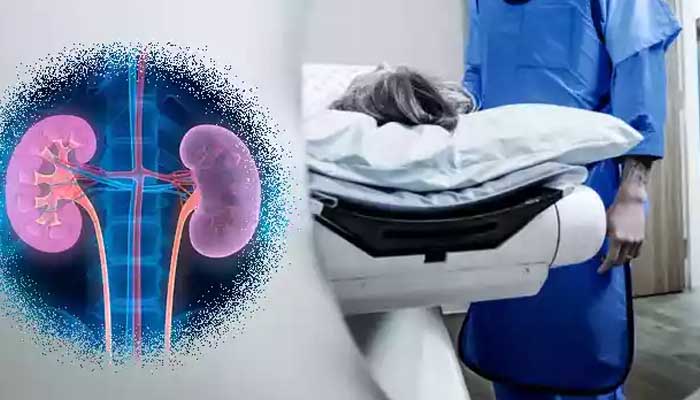Kidney failure is a broad term that encompasses several health issues affecting the kidneys’ ability to filter waste and excess water from the blood. The severity of kidney failure can range from mild to severe and may sometimes progress to advanced stages, often referred to as late-stage kidney disease.
This article will provide a comprehensive overview of kidney failure, including the various types of kidney damage, common symptoms, and available treatment options. By gaining insight into these aspects, you’ll be better equipped to understand kidney failure and take appropriate steps to manage and address this condition.

Types of Kidney Failure
1. Chronic Kidney Disease (CKD):
- Definition: Chronic Kidney Disease is characterized by long-term kidney damage or decreased kidney function lasting three months or more. It often progresses slowly without noticeable symptoms, which means CKD may not be detected until kidney function has significantly declined.
Stages of CKD:
- Normal to Mild: Kidney function is generally greater than 60%.
- Light: Kidney function is between 45% and 59%, with few symptoms.
- Moderate: Kidney function is between 30% and 44%. Initial symptoms such as fatigue, loss of appetite, and itching may appear.
- Severe: Kidney function is between 15% and 29%. Symptoms worsen, including severe fatigue, nausea, and difficulty breathing.
- Advanced: Kidney function falls below 15%. Severe symptoms persist, and kidney function is critically low.
2. Acute Kidney Failure:
- Definition: Acute Kidney Failure occurs suddenly, often due to an infection or disease that affects the kidneys’ filtering ability. Unlike chronic kidney failure, it can sometimes be reversed with emergency treatments like dialysis, and kidney function may return to normal.

Symptoms of Kidney Failure
The symptoms of kidney failure vary by stage and can include:
- Normal to Mild: Typically asymptomatic.
- Light: No symptoms observed.
- Moderate: Fatigue, loss of appetite, itching.
- Severe: Worsening symptoms such as severe fatigue, nausea, difficulty breathing, and persistent itching.
- Advanced: Persistent severe symptoms requiring intensive management.

Treatment Options for Kidney Failure
1. For Chronic Kidney Disease:
- Early Stages: Focus on correcting underlying causes, monitoring kidney function, and managing albumin levels and blood pressure.
- Moderate to Severe Stages: Continue monitoring and strive to prevent further deterioration of kidney function. Discuss and explore treatment options.
- Advanced Stages: Consider treatment options such as dialysis, kidney transplantation, or supportive care based on symptoms and overall health.
2. For Acute Kidney Failure:
- Emergency Treatment: Includes temporary dialysis to manage symptoms and support kidney function while addressing the underlying cause.

Monitoring Kidney Function
Your healthcare team will use various indicators, such as the Glomerular Filtration Rate (GFR) and albumin levels, to assess kidney function and determine appropriate treatments. Regular monitoring helps manage kidney health and plan for necessary interventions.
Conclusion
Kidney failure, whether acute or chronic, requires careful management and treatment. Early detection and a comprehensive understanding of the condition can significantly impact treatment outcomes and overall quality of life.
| NORMAL | LIGHT | MODERATE | SEVERE | ADVANCED RENAL FAILURE | |
| Renal Function | > 60%* | 45%-59% | 30%-44% | 15%-29% | < 15% |
| Symptoms | No symptoms observed | No symptoms observed | Initial symptoms may appear, including fatigue, loss of appetite and itching. | Worsening of symptoms (fatigue, loss of appetite, itching) | Severe fatigue, nausea, difficulty breathing and itching are sometimes observed |
| Treatment options | Determine the cause and try to correct it Monitor albumin levels and GFR | Monitor albumin levels, GFR, blood pressure, and general health and well-being Try to prevent or slow the deterioration of kidney function | Monitor albumin levels and GFR and continue to try to prevent or slow the deterioration of kidney function Learn about CKD and treatment options | Monitor albumin levels and GFR and continue to try to prevent or slow the deterioration of kidney function Discuss and establish appropriate treatment: access to dialysis, evaluation for kidney transplantation, or information on supportive care other than dialysis | Monitor albumin and GFR and continue to try to prevent or slow the deterioration of kidney function Continue supportive care other than dialysis, plan for kidney transplantation, or start dialysis (depending on symptoms)** |
*Normal, unless there is underlying disease, kidney damage, or albumin in the urine.
** The timing of dialysis will be determined by many factors. Discuss this with your doctors and your healthcare team.
